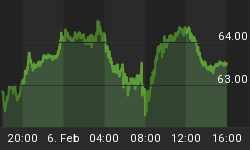Many of the issues currently causing worry among Americans, particularly among the working class, are based on several assumptions. Fortunately, many of these assumptions are flawed.
Of these worries, two stand out: First, that the national debt is growing too large and too fast, and that it will cause the US to go bust. Second, that employment in this country has undergone a substantial shift and that we must adjust to the "new normal."
Oddly enough, these concerns are related, and both are based on the assumption that jobs which have been swept overseas during outsourcing wave of the past several decades are gone forever.
Since we at Treece Investments spend roughly 80% of our time trying to figure out where the economy is headed (so we can make profitable investments for clients) we feel fairly competent to address this topic, and qualified to comment. And given the set of economic circumstances that we see developing presently, we feel confident in saying that manufacturing must come back to the US.
As the economies of China, India and Russia have grown over the past several decades thanks to outsourcing and political shifts (Russia), each has begun developing a substantial middle-class that did not previously exist.
These growing middle classes are now getting to the point where they want access to many of the same luxuries that we have long enjoyed in this country.
For example, in Russia car sales have roughly doubled this year from last. In China, meanwhile, the average age of an owner of Mercedes' luxury S-class sedan is a startling 26, all of 30 years less than it is in this country.
To date, as these countries have grown an increasing amount of their production has gone simply to meet demand within their own countries. Rather than building goods and shipping them to the Americas or Europe for sale, they are sold in India, Russia, or China without such high shipping costs.
Thankfully for the US, many of these countries are now getting to the point where they are having trouble simply producing enough to meet their internal demand, let alone those from other nations that had outsourced their production.
As the Asian nations have developed each has carved out a role in the manufacturing process, but in a strange twist of events it seems that they are missing a valuable link in the chain that few nations besides ours can fill: Russia has raw materials, India has technology, China does manufacturing, but none of them do engineering. The US, however, is one of if not THE world's best country for engineering, and while other countries do have manufacturing sectors, few do it has efficiently as we do.
In fact, thanks to many of our contacts in various businesses, most notably automotive manufacturing, we have personal knowledge that the Chinese are actually looking at outsourcing a good deal of their engineering to the US.
We've also caught wind of several Chinese companies that are considering purchasing manufacturing facilities in the United States. Ironically, they've apparently grown tired of having a government that owns everything, and though the US has been looking increasingly socialist, it's still not caught up to Red China.















